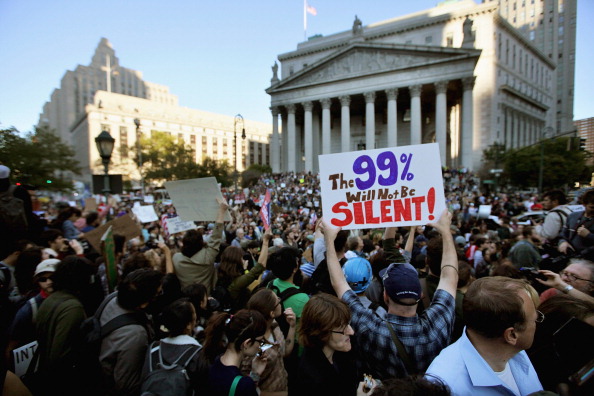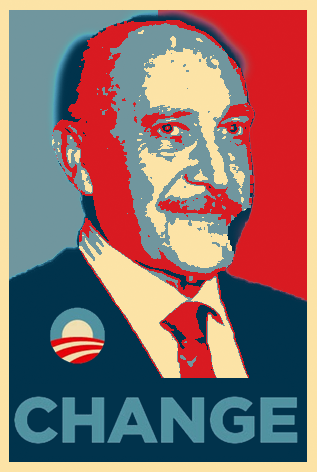Posted on November 29th, 2011 at 2:18 pm by Steve

Corporations are legal “persons,” and, like you and me, enter into binding legal contracts. One difference is, when they go bankrupt, they just “shed” their obligations and move on. You and I aren’t usually so lucky.
A case in point is extreme financial distress. For a person, this might be caused by a loss of employment, or sudden illness; for a corporation, it could be a drop in business, excessive operational costs, or bad planning. In either case: revenue is down, costs are up, and the balance sheet is negative.
If you’re a person, this kind of crisis means that you’ll suffer direct hardships: the things you own get taken away, and if you actually still earn money, your future earnings are pledged to your creditors. If you have a mortgage, you’re typically foreclosed and lose your home. Your car gets repossessed. Your belongings are sold off to pay your debts.
Ah, but if you’re a corporation, things are different! You can simply “shed” those expensive obligations and soldier on! Well, you can’t shed all your contracts – just the ones you made with your employees:
AMR [American Airlines’ parent company] was determined to avoid Chapter 11 as air travel fell and losses mounted after the 2001 terrorist attacks, even as peers used bankruptcy to shed costly pension and retiree benefit plans and restructure debt.
(Source: Bloomberg Business Week, November 29, 2011)
Of course, the obligations you made to your peers (i.e., other corporations) must still be honored. These debts will be “restructured.” But your contractual promises to pay for the doctor visits and medicine for the thousands of people who gave you 30 of the best years of their lives? Those you can “shed” like a tired skin you’ve outgrown.
“You would expect a leaner, stronger company to emerge from bankruptcy,” Chris Logan, an analyst at Echelon Research & Advisory LLP in London, said today by telephone. “As they are in Chapter 11, it will be more easy to demand concessions from the labor force.”
Ah yes, “concessions from the labor force!” In other words, the executives hold a gun to the heads of the employee unions and offer them a choice: either some of you lose your jobs and the rest lose your benefits and even more of your salary, or all of you lose your jobs and your benefits and all of your salary. Some choice.
It’s not like we haven’t been down this road before, with this very company. American’s pilots, flight attendants, mechanics, gate agents, baggage handlers – you know, the people who actually make the planes fly and keep the passengers safe – these very employees took a 30% pay cut back in 2003 in hopes of avoiding a bankruptcy proceeding. Those poor saps! Now, instead of regaining the $1,600,000,000 that they gave up eight years ago, they’re being told that they’re still earning too much, and that if they don’t make further sacrifices, they’ll all lose their jobs.
While the workers have already taken huge pay cuts, given up their pensions, and paid more in health insurance premiums, American’s executives have somehow managed to escape harm. In 2008, the same year his airline lost more than $2 BILLION the boss’s compensation package topped $5 million. But, pity poor Gerald Arpey: that $5 mil was a 22% drop over his 2007 compensation.
A quick glance at the headlines will tell you that, even through huge losses and now bankruptcy, The 1% at AMR are doing just fine: “Despite losses, American Airlines CEO’s compensation climbs” – Fort Worth Star-Telegram, Apr. 21, 2011; “Executive compensation at American Airlines raises eyebrows” – Tulsa World, April 19, 2010; “AP says Arpey earned $6.6 million in 2007” – Dallas Morning News, April 19, 2008.
Thus do the executives of the corporate entity continue to prosper and thrive, continuing to do their “jobs” of running the business, while thousands of employees are laid off, and tens of thousands more lose the only hope they had of actually being able to, you know, survive their retirement years on something other than handouts and cat food.
Although all of that can change.







